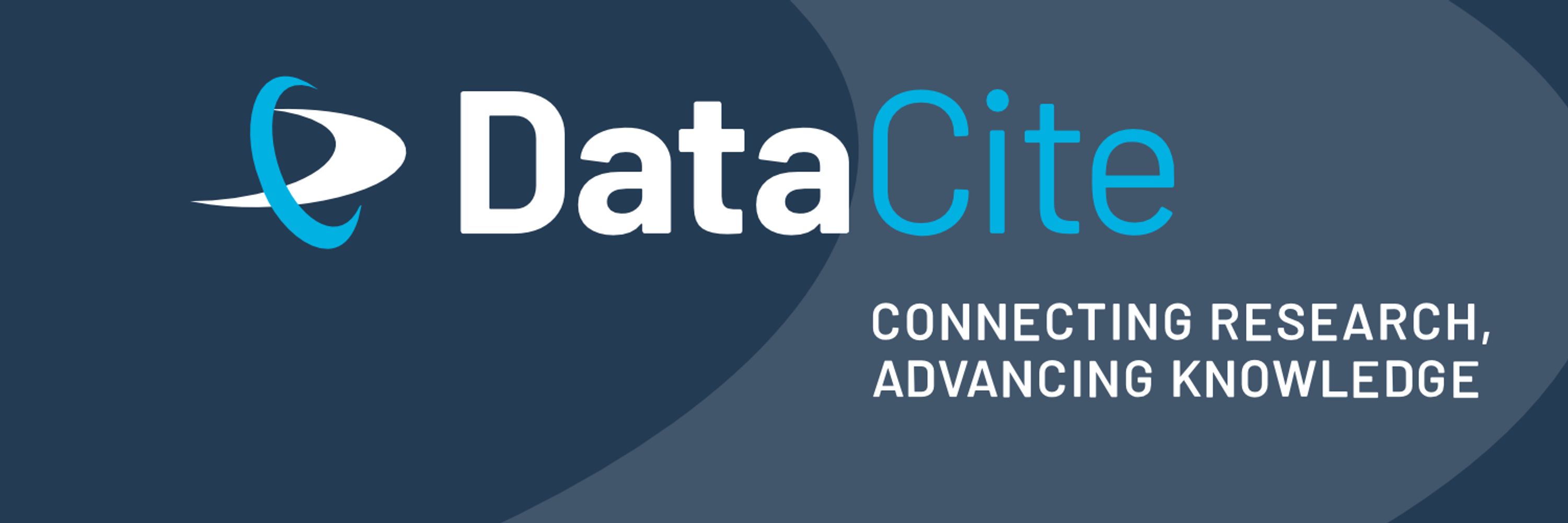
We thank the DataCite Consortium Leads for all their hard work in growing and supporting the DataCite community around the world.
We thank the DataCite Consortium Leads for all their hard work in growing and supporting the DataCite community around the world.
Thank you for joining our growing community!

Thank you for joining our growing community!

Check out the #CARE Principles 👇
Check out the #CARE Principles 👇

At the same time, the project provided training on documentation, metadata & the use of DataCite infrastructures. doi.org/10.5438/1ev2...

At the same time, the project provided training on documentation, metadata & the use of DataCite infrastructures. doi.org/10.5438/1ev2...
The #CARE Principles For #IndigenousData and #DataSovereignty Webinar.
🗓️ Thu, 11 Dec.
🟢 9:00-11:30 GMT
events.teams.microsoft.com/event/efc1aa...
🟠 16:00-18:15 GMT
events.teams.microsoft.com/event/d67781...

The #CARE Principles For #IndigenousData and #DataSovereignty Webinar.
🗓️ Thu, 11 Dec.
🟢 9:00-11:30 GMT
events.teams.microsoft.com/event/efc1aa...
🟠 16:00-18:15 GMT
events.teams.microsoft.com/event/d67781...

Building a DataCite integration fostered biodiversity data management & awareness around the importance of #metadata in the Vietnamese region.
Read more on our blog: doi.org/10.5438/8xmr...
#OpenScience

Building a DataCite integration fostered biodiversity data management & awareness around the importance of #metadata in the Vietnamese region.
Read more on our blog: doi.org/10.5438/8xmr...
#OpenScience
Special thanks go to the 6 presenting members who shared their reasons for joining DataCite, how they use DataCite services & the problems DataCite is helping to solve! 👏
👇🎬 Watch here:
youtube.com/playlist?lis...

Special thanks go to the 6 presenting members who shared their reasons for joining DataCite, how they use DataCite services & the problems DataCite is helping to solve! 👏
👇🎬 Watch here:
youtube.com/playlist?lis...

The DataCite Community Survey is open until 1 Dec. Tell us how we can improve our services, tools & community engagement around metadata, PIDs & open infrastructure.
Your insights shape the future of open & connected research:
bit.ly/4850AFT

The DataCite Community Survey is open until 1 Dec. Tell us how we can improve our services, tools & community engagement around metadata, PIDs & open infrastructure.
Your insights shape the future of open & connected research:
bit.ly/4850AFT
We asked Maria Gould, Director of Strategic Programs and Partnership at DataCite @datacite.org
❗️P.S. DataCite Annual Community Survey is open until 1st December:
https://bit.ly/4oFaofN ##DataCite #OpenScience #Metadata #ResearchData

We asked Maria Gould, Director of Strategic Programs and Partnership at DataCite @datacite.org
❗️P.S. DataCite Annual Community Survey is open until 1st December:
https://bit.ly/4oFaofN ##DataCite #OpenScience #Metadata #ResearchData

Share your thoughts on #metadata, #PIDs & open infrastructure, and help us improve our services & engagement.
Thank you for helping us shape the future of open & connected research: bit.ly/4850AFT
Deadline: 1 Dec 2025
#OpenResearch #OpenScience

Share your thoughts on #metadata, #PIDs & open infrastructure, and help us improve our services & engagement.
Thank you for helping us shape the future of open & connected research: bit.ly/4850AFT
Deadline: 1 Dec 2025
#OpenResearch #OpenScience
The event is free & open to everyone.
Register now at: datacite.org/events/list/...




The event is free & open to everyone.
Register now at: datacite.org/events/list/...
El 11 de noviembre a las 15:00 UTC, Iratxe Puebla (Directora de Make Data Count) mostrará cómo medir de forma responsable el impacto de los datos de investigación, usando infraestructura abierta y prácticas estandarizadas. Inscríbete aquí: datacite.org/event/make-d...

El 11 de noviembre a las 15:00 UTC, Iratxe Puebla (Directora de Make Data Count) mostrará cómo medir de forma responsable el impacto de los datos de investigación, usando infraestructura abierta y prácticas estandarizadas. Inscríbete aquí: datacite.org/event/make-d...

#OpenScience #OpenResearch #CommunityDriven #DataCiteConnect25

#OpenScience #OpenResearch #CommunityDriven #DataCiteConnect25

We’re opening our Call for Applications for the 2026 DataCite Steering & Working Groups!
Apply by Nov 17 to help guide DataCite’s community, technology & metadata work.
Find more info & the application link on our blog: doi.org/10.5438/1yt8...

We’re opening our Call for Applications for the 2026 DataCite Steering & Working Groups!
Apply by Nov 17 to help guide DataCite’s community, technology & metadata work.
Find more info & the application link on our blog: doi.org/10.5438/1yt8...

#OpenScience #OpenInfrastructure #OpenResearch #DigitalObjectIdentifer #DOI #CommunityDriven

#OpenScience #OpenInfrastructure #OpenResearch #DigitalObjectIdentifer #DOI #CommunityDriven
https://openscholarlyinfrastructure.org
#infrastructure #openinfrastructure #scholcomm

https://openscholarlyinfrastructure.org
#infrastructure #openinfrastructure #scholcomm
If you're curious about how we're making field research workflows FAIR with IGSN IDs, we put together a video showing the whole process
Check it out here: youtu.be/XxlrblGxvGY?...
#DataCiteConnect2025 #IGSN

If you're curious about how we're making field research workflows FAIR with IGSN IDs, we put together a video showing the whole process
Check it out here: youtu.be/XxlrblGxvGY?...

